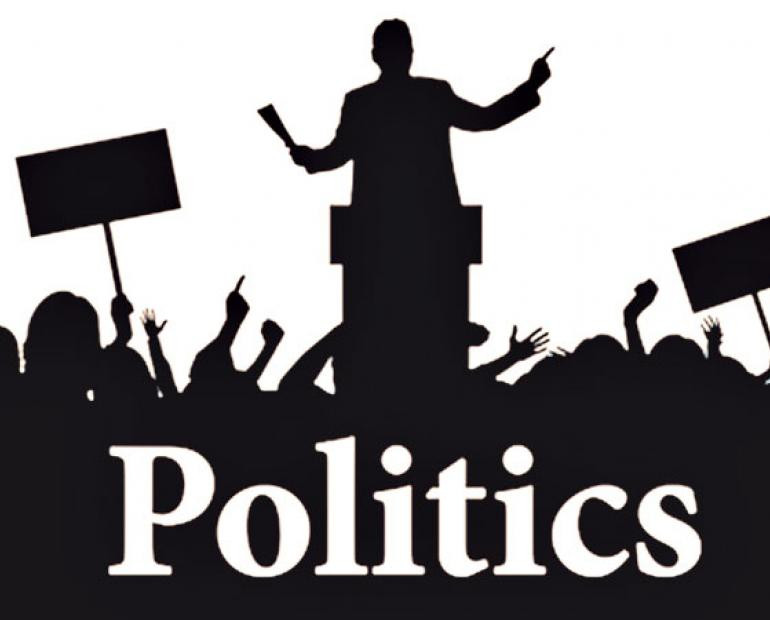
POLITICAL polarisation at a global level is worming itself into the governance fabric of institutions. Institutions are being immobilised by political polarisation at both elite and mass levels. Political polarisation is cancerous, once it sets in, it creates binary divisions that complexify human relations and power and decision dynamics. It is the intent of this opinion piece to check in my thoughts and feelings about political polarisation as it relates to side and perspective taking.
Political polarisation is about binary divisions that define social groups according to homophilic tendencies, it is about us versus them, it is about sharp divisions between political groups whose political credos and normative practices are at tangent with one another. Political polarisation is also a spectrum that comes with innumerable variables such as belief polarisation, affective polarisation and pernicious polarisation, among others. Political polarisation at a global level has seen the remainers and leavers in Britain with respect to the area — issue of Brexit, political polarisation has seen the stagnation of the Immigration Bill in the United States because the Republicans and the Democrats cannot agree on the best way forward, political polarisation in Africa has seen African countries that are being ruled by parties of former liberation fighters siding with one another on matters of regional and national sovereignty that have cajoled them to regard oppositional forces as the spirit mediums of the neo-colonialists’ bent on giving back the hard won political independence to the former colonisers.
The examples given above regarding political polarisation amply demonstrate that where there is political polarisation there is side taking as compared to perspective taking. When ideas are floated for policy development, the ideas are not entertained on the basis of their cogency, rather they are looked at in terms of their source. The source of ideas will determine whether they will be considered for agenda setting or not. In America there have been fights at the elite level regarding the best policy to adopt with respect to gun control, abortion, immigration and support for Ukraine. In Uganda there has also been unprecedented brouhaha regarding the rights of lesbian, gay, bisexual, transgender or intersex (LGBTI) as a key population, and the brouhaha has caused sharp divisions at geopolitical, geo-economic, transnational and national levels. At a geopolitical level, international financial institutions have loudly and clearly stated that Uganda will not receive any official development aid (ODA) because of its tendency to trample upon the sexual rights of the LGBTI population. The polariatison along the sexuality orientation of people has also caused sharp divisions between the global South and the global North. In South Africa, elite and mass polarisation regarding foreigners as the chief causes of unemployment and poor living conditions for the South Africans has necessitated xenophobic tendencies. In Zimbabwe political polarisation at both the elite and mass level, has left the country in a roundabout of by-elections that have taken away critical time for development. Where there is political polarisation, the bottom line is out-thinking and out-maneuvering one another at the expense of growth with development.
Political polarisation is not healthy, as it has the potential to lead to civil wars, conflicts and dysfunctionality of institutions. Where there is political polarisation, people spend their emotional, physical, intellectual, intuitive and spiritual energies trying to outdo one another. With political polarisation filter bubbles become common and echo chambers, the order of the day. Political polarisation paralyse institutions, Parliaments become arenas for side taking rather than perspective taking, the Judiciary becomes a tool for manipulation by those wielding both economic and political power, rule of law becomes rule by law depending on who is before the courts, public policies become missiles for the oppositional politics and the media becomes the instrument of the powerful politicians to communicate hate speech, spew propaganda and also to popularise the ideologies of those in rulership.
Political polarisation will not build nations, rather it creates distinct camps that do not prize development but personalities. When personalities are godified, they can deliberately micro-other outgroups with the aid of state-controlled media. Micro-othering outgroups can create a fertile ground for frustration which may eventually give birth to underground activities that may destabilise a country. While political polarisation may have the unspoken message of motivating those in power to change their ways for the better, it is largely corrosive with respect to the development of the moral economy and democracy. Countries will not prosper if their expenditure of effort is more towards fighting one another, team work should be the signature of citizens. The DNA for prospering countries begins and ends with a singleness of purpose and fixity of focus. The more political polarisation gets to be pronounced in a country, the more institutions become dysfunctional and the more vulnerable groups get exposed to structural causes of poverty. In whatever citizens do, they should appreciate that citizenship is much more than a right as it straddles bundles of duties. Nations that thrive on perspective taking thrive more as compared to nations that thrive on side taking because they are bound by a spirit of co-nationality and positive reciprocity.
- Nicholas Aribino is the ZimCare Trust country director. He writes here in his personal capacity.










